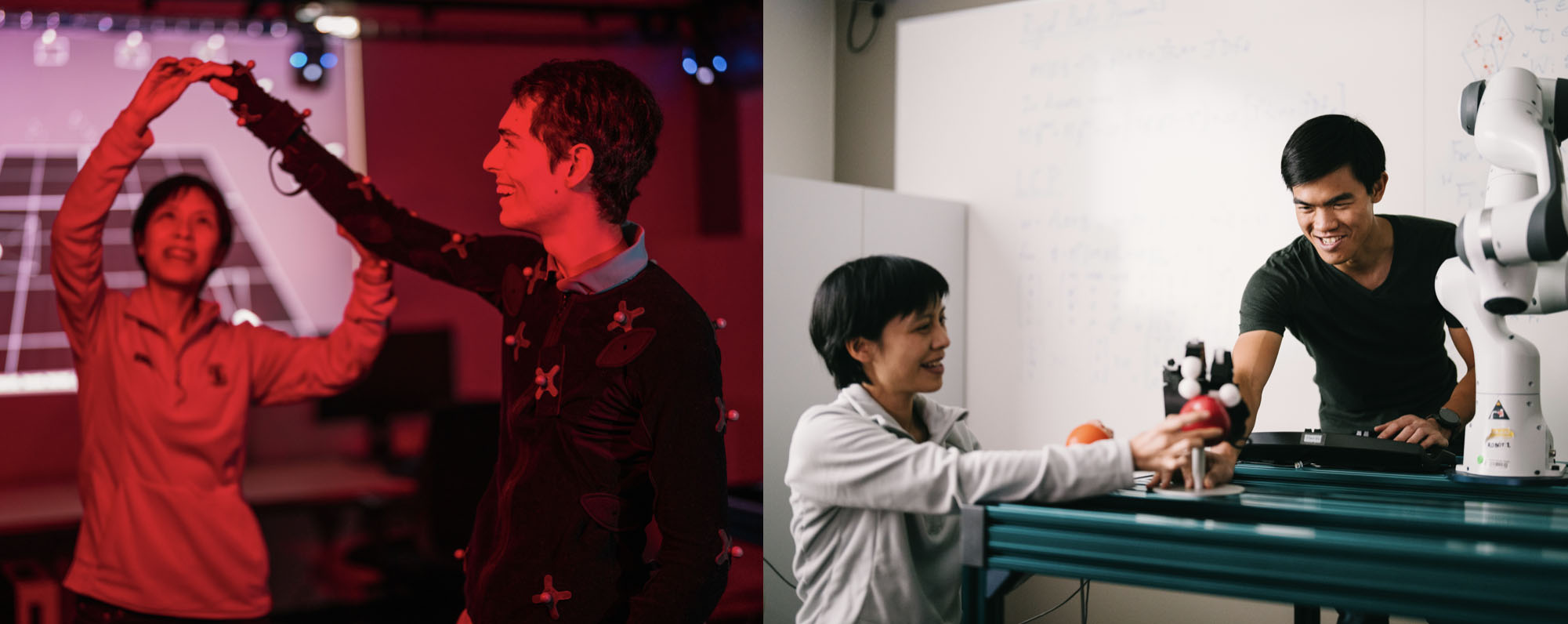
5:00 pm to 6:00 pm
Rashid Auditorium – 4401 Gates and Hillman Centers
Building Large Models for Human Motion
Large generative models for human motion, analogous to ChatGPT for text, will enable human motion synthesis and prediction for a wide range of applications such as character animation, humanoid robots, AR/VR motion tracking, and healthcare. This model would generate diverse, realistic human motions and behaviors, including kinematics and dynamics, and could be conditioned on various inputs, such as audio, video, text, or medical data. However, building such a model requires a massive and diverse training dataset of high-quality 3D human motion, which is currently limited by the labor-intensive and confined data collection processes. In this talk, I will delve into several projects that innovate human motion capture technologies, aiming to amass a large-scale repository of human motion data, encompassing a broad spectrum of activities performed in diverse real-world environments. Additionally, I will highlight our recent effort in building sophisticated generative models for human motion. These models are characterized by their ability to produce high-fidelity outputs, adapt to various conditioning inputs, and offer precise controllability.
—
C. Karen Liu is a professor in the Computer Science Department at Stanford University. Liu’s research interests are in computer graphics and robotics, including physics-based animation, character animation, optimal control, reinforcement learning, and computational biomechanics. She developed computational approaches to modeling realistic and natural human movements, learning complex control policies for humanoids and assistive robots, and advancing fundamental numerical simulation and optimal control algorithms. The algorithms and software developed in her lab have fostered interdisciplinary collaboration with researchers in robotics, computer graphics, mechanical engineering, biomechanics, neuroscience, and biology. Liu received a National Science Foundation CAREER Award, an Alfred P. Sloan Fellowship, and was named Young Innovators Under 35 by Technology Review. Liu also received the ACM SIGGRAPH Significant New Researcher Award for her contribution in the field of computer graphics. In 2021, Liu was inducted to ACM SIGGRAPH Academy.
